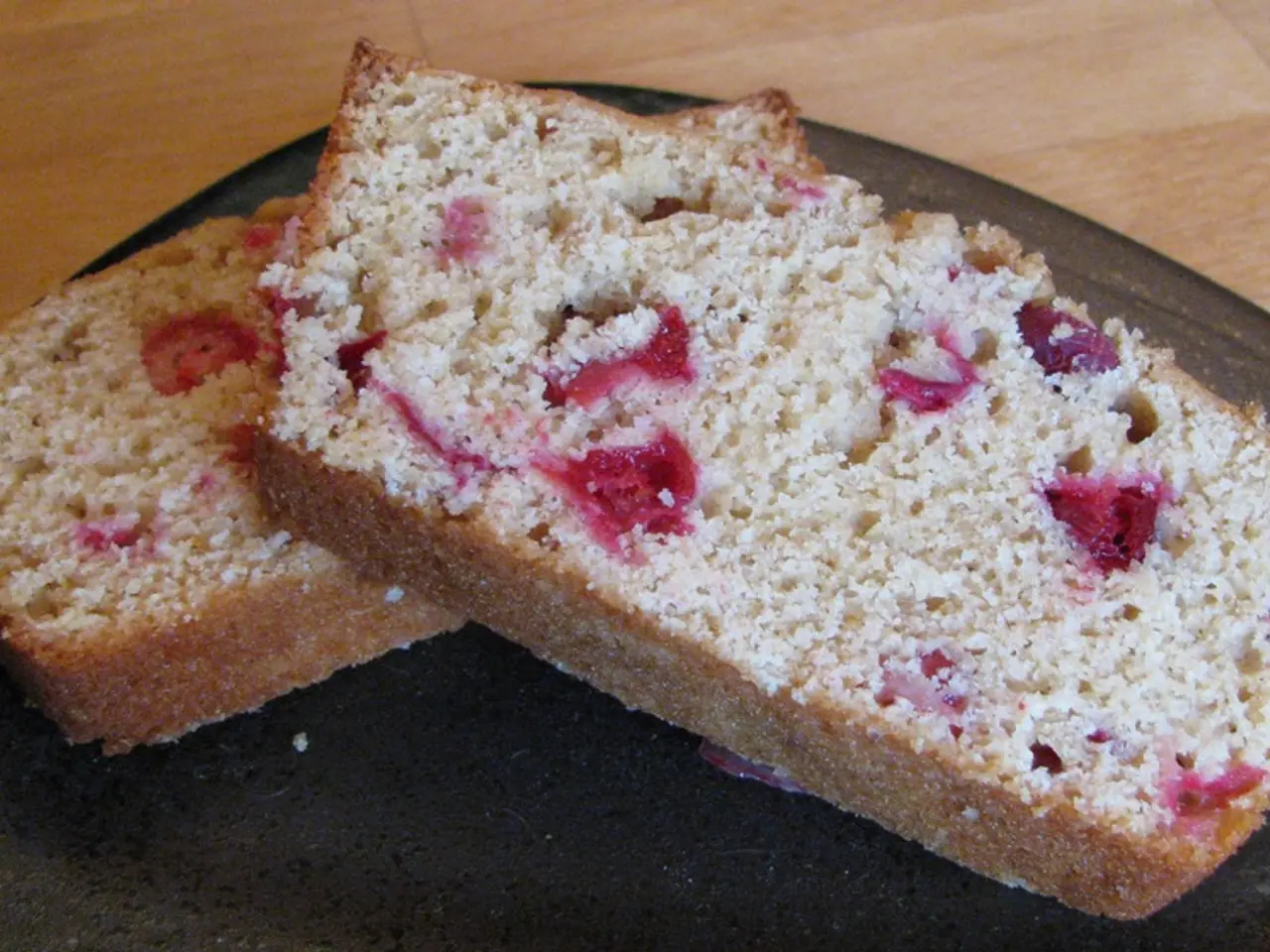Simple Guide to Achieving Delicious Homemade Bread in 30 Steps
In the world of bread baking, the choice of flour can make all the difference. A humble ingredient, yet one that holds immense potential for transforming your loaves from ordinary to extraordinary.
A premium strong flour might cost 50% more than basic all-purpose flour, but it virtually guarantees success. It's an investment in your baking journey, ensuring consistent results and bakery-quality bread at home.
Starting with a high-quality strong white flour as your foundation is essential. This handles 80% of home bread baking needs, providing a solid base for your creations. For heartier breads and more complex flavors, consider adding strong wholemeal flour or specialty strong flours like spelt or emmer. These unique flour types offer distinct flavor profiles, but require slight technique adjustments due to their different gluten characteristics.
Whole grain strong flour has a shorter shelf life due to the oil content in the wheat germ. Use within 3-6 months of purchase, or store in the freezer for longer preservation.
The difference between weak and strong flour becomes immediately apparent in your finished bread. Strong flour bread rises dramatically during proofing and baking, exhibiting distinct air pockets with thin, elastic walls. The texture remains tender yet chewy, with good slice integrity that doesn't crumble or compress.
The stretch and fold technique works particularly well with strong flour. This technique involves stretching the dough and folding it over itself at regular intervals, gradually building gluten strength without overworking the dough.
Experimenting with different brands is key to finding your preference. Flour characteristics vary between producers, and you may discover that certain brands work better with your baking style or local water conditions.
Seasonal considerations matter in flour quality. New crop flour (milled from recently harvested wheat) often has higher enzyme activity and may behave differently than aged flour. Some bakers prefer flour that's been aged 2-3 months for more consistent performance.
Flavor development also improves with strong flour. The robust gluten networks better support extended fermentation, allowing for more complex flavor development. The bread maintains freshness longer due to superior moisture retention.
Choosing flour that matches your ambitions is crucial. Strong flour isn't just an ingredient upgrade-it's an investment in your success, your confidence, and your family's daily bread. Every loaf becomes a testament to the power of starting with the right foundation, proving that sometimes the most transformative changes come from the simplest swaps.
Remember, storage conditions affect flour quality significantly. Look for flour stored in cool, dry conditions. Avoid bags that feel warm or show signs of moisture damage. Whole grain flours are particularly susceptible to rancidity due to oil content in the germ.
Investing in strong flour might seem expensive initially, but the economics actually favor quality flour when you calculate cost per successful loaf. The frustration of unpredictable results disappears, replaced by the satisfaction of creating bakery-quality bread at home.
Lastly, always check the protein percentage first when evaluating flour. For strong flour, look for 12% minimum, with 13-14% being ideal. The autolyse method and the cooler water (65-70°F) also play significant roles in achieving the best results with strong flour.
As you delve into the world of strong flour, you'll find that it's more than just an ingredient. It's a tool for unlocking your full baking potential, turning each loaf into a delicious testament to your newfound skills and confidence. Happy baking!
Read also:
- Cheese consumption leads to fatalities for two individuals.
- AI's looming shadow on Mexican small-scale enterprises: how purpose-driven communities can offer salvation
- Untreated window condensation can escalate into more substantial issues: Delving into the reasons behind it and the necessity for resolution.
- Altered Human Genetics through Covid mRNA Immunizations








